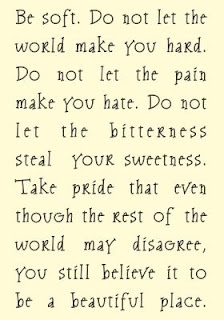Saudi Women May Get Driver's Licenses—With Some Major Caveats— GlobalAwareness101 (@Mononoke__Hime) October 27, 2017
Their male guardians still have right to oppress them.https://t.co/hedYOEjy33
The Atlantic News
written by Krishnadev Calamur
Tuesday September 26, 2017
King Salman’s royal decree Tuesday granting driver’s licenses to Saudi women ends the kingdom’s dubious distinction of being the only country that forbids women from driving.
This doesn’t mean that Saudi women, who have for years campaigned to be allowed to drive, can immediately get behind the wheel of their friend’s father’s mint-condition 1961 Ferrari 250 GT and drive it around Riyadh while skipping school. Salman’s decree orders the establishment of a ministerial body that will make recommendations in 30 days. Those recommendations are expected to go into effect next summer, the state-run Saudi Press Agency reported.
Saudi Arabia follows Wahhabism, the strict brand of Islam, that, among other things, forbids the mixing of sexes and mandates the veiling of women. Yet the origins of the driving ban are murky and, as the decree notes, “the original Islamic ruling in regards to women driving is to allow it.” Saudi women—and their male allies—have campaigned for years for the right to drive. Over the years, many women have been fined and imprisoned for driving in defiance of the ban.
As my colleague Olga Khazan wrote in 2013, the proscription was both cultural and religious. (The decree states: “[T]hose who who have opposed [allowing women to drive] have done so based on excuses that are baseless and have no predominance of thought.”) A Saudi judicial adviser quoted in her story noted: “If a woman drives a car, not out of pure necessity, that could have negative physiological impacts as functional and physiological medical studies show that it automatically affects the ovaries and pushes the pelvis upwards. That is why we find those who regularly drive have children with clinical problems of varying degrees.” Here’s more:
In 1990, Saudi women began demanding social reforms, including the right to drive, but instead the religious police cracked down harder, formalizing a driving ban that had previously been unofficial.“The incident catalyzed a moral campaign meant to reinforce the feminine ideal of a pious secluded wife and mother,” Jaime Kucinskas, who teaches a course on religion and society at Indiana University, told me in an email. “The state-funded media released a television program showing little girls singing how they were women and did not drive cars.”Today, not only are the country’s women prohibited from chauffeuring themselves around, they’re also discouraged from traveling alone or using public transportation.
The king’s order by no means puts Saudi Arabia’s female citizens legally on par with their male counterparts. It says nothing about the Kingdom’s controversial male guardianship system, which despite recent modest loosening by King Salman still requires women to secure a man’s permission for basic tasks like travel—which seems to include driving. In most cases, moreover, a woman’s testimony before a court counts as only half that of a man’s, according to the U.S. State Department’s 2016 human-rights report on the country. The report cited Saudi Arabia’s “pervasive gender discrimination and lack of equal rights that affected most aspects of women’s lives.”
“Violence against women; trafficking in persons; and discrimination based on gender, religion, sect, race, and ethnicity were common,” the report added.
Human Rights Watch, meanwhile, noted that the male guardianship system restricted the movement of its female citizens. “Women regularly face difficulty conducting a range of transactions without a male relative, from renting an apartment to filing legal claims,” the organization said.
There have been positive changes for women, too—but they have come slowly. In 2015, Saudi Arabia permitted women to vote and run as candidates in municipal elections. Four Saudi women represented their country at the Rio Olympics. Tuesday’s order that could allow women to legally hit top gear is another step in that direction.
— GlobalAwareness101 (@Mononoke__Hime) October 27, 2017
The Week News
written by Staff
Wednesday September 27, 2017
Women in Saudi Arabia will be allowed to drive for the first time in the country’s history, thanks to a decree issued by King Salman.
Although women were not technically banned from driving under Saudi law, local authorities consistently refused to issue women with a driving licence, resulting in a de facto ban. Many Islamic scholars justified the ban on the grounds that allowing women the means to travel without supervision would inevitably mean contact with unrelated men, and thus would undermine the country’s strict principles of gender segregation.
After years of lobbying by women’s rights activists, King Salman has now said that local authorities must be prepared to issue female applicants driving licences within 30 days. The royal decree came days after a senior cleric was banned from preaching after claiming that women should not drive because their brains were the quarter the size of a man’s when they were distracted by shopping.
Saudi Arabia’s human rights record, especially with regards to protecting women, has often been called into question.
Although women’s rights have been incrementally extended in recent years – for instance, they were allowed to vote and stand as candidates in municipal elections for the first time in 2015 – their public behaviour is still severely restricted. Here are six things women in Saudi Arabia are unable to do:
Make major decisions without male permission
With the driving ban victory still fresh, Saudi women’s rights activists are eyeing up the next hurdle – dismantling the kingdom’s guardianship system, which Human Rights Watch has called “the most significant impediment to realising women’s rights in the country“.
All women in the kingdom are considered to have a male “wali” – an official guardian, typically a father, brother, uncle or husband.
Although guardianship is not enshrined in written law, government officials, courts, businesses and individual Saudis generally act in accordance with it, meaning that, in practice, women need their guardian’s consent for any major activity, including travelling, obtaining a passport, getting married or divorced and signing contracts.
In May 2017, activists won a small but significant victory when King Salman issued an order specifying that women did not need permission from their male guardian for some activities, including entering university, taking a job and undergoing surgery.
Campaigner Maha Akeel said the decision “opens the door for discussion on the guardian system”, Metro reports.
Women’s rights groups in the country are now lobbying for the end of guardianship in Saudi society, often using the social media hashtag “#IAmMyOwnGuardian”.
Wear clothes or make-up that ”show off their beauty“
The dress code for women is governed by a strict interpretation of Islamic law and is enforced to varying degrees across the country. The majority of women wear an abaya – a long cloak – and a head scarf. The face does not necessarily need to be covered, ”much to the chagrin of some hardliners“, says The Economist. But this does not stop the religious police from harassing women for exposing what they consider to be too much flesh or wearing too much make-up.
Earlier this year, a prominent cleric called for even more modesty, urging the nation’s “daughters” to avoid “any abaya that has any decorations… No embellishment, no slits, no openings”.
Two weeks later, a video circulated on social media showing an anonymous Saudi woman walking around a deserted fort north of Riyadh wearing a miniskirt, in seeming defiance of such strict regulations on women’s clothing.
The six-second clip sparked a heated debate in the country, with conservatives demanding her arrest pitted against reformers applauding her bravery. The woman was summoned for questioning by police, but later released without charge.
Interact with men
Women are required to limit the amount of time spent with men to whom they are not related. The majority of public buildings, including offices, banks and universities, have separate entrances for the different sexes, the Daily Telegraph reports. Public transportation, parks, beaches and amusement parks are also segregated in most parts of the country. Unlawful mixing will lead to criminal charges being brought against both parties, but women typically face harsher punishment.
Go for a swim
Women are not allowed to use public swimming pools available to men and can swim only in private ones or female-only gyms and spas. Reuters editor Arlene Getz describes her experience of trying to use the gym and pool at an upmarket Riyadh hotel: ”As a woman, I wasn’t even allowed to look at them (‘there are men in swimsuits there,’ a hotel staffer told me with horror) – let alone use them.“
Compete freely in sports
Last year, Saudi Arabia proposed hosting an Olympic Games without women. ”Our society can be very conservative,“ said Prince Fahad bin Jalawi al-Saud, a consultant to the Saudi Olympic Committee. ”It has a hard time accepting that women can compete in sports.“
When Saudi Arabia sent female athletes to the Olympics for the first time, at London 2012, hardline clerics denounced the two competitors as ”prostitutes“. The women also had to be accompanied by a male guardian and cover their hair.
However, in September 2017, Saudi Arabia’s national stadium welcomed its first ever female spectators. Women were assigned their own section in the normally male-only venue to watch celebrations marking the anniversary of the founding of Saudi Arabia.
Try on clothes when shopping
”The mere thought of a disrobed woman behind a dressing-room door is apparently too much for men to handle,“ says Vanity Fair writer Maureen Dowd in A Girl’s Guide to Saudi Arabia.
Other more unusual restrictions on women’s lives include entering a cemetery and reading an uncensored fashion magazine.
However, adds Dowd, everything in Saudi Arabia ”operates on a sliding scale, depending on who you are, whom you know, whom you ask, whom you’re with, and where you are“.
But things are slowly beginning to modernise. ”Saudi Arabia is the world’s most gender-segregated nation, but amid changes now under way, multiple generations of women are debating how to be truly modern and truly Saudi,“ says National Geographic.
A transformation is indeed under way, confirms royal adviser Hanan Al-Ahmadi, ”but we need to be able to create this change gradually and maintain our identity“.
Saudi Women Can Now Drive, But Can't Use Their Own Names https://t.co/0N57XOjpKP #Islam #sharia fyi Linda Sarsour glorifies this oppression.— GlobalAwareness101 (@Mononoke__Hime) October 27, 2017
Time.com
written by Jasmine Bager
Friday September 29, 2017
Earlier this week, I did something perfectly ordinary: I renewed my U.S. driver's license. That's something I couldn't do in my home country of Saudi Arabia because there is no women's section at the DMV — there is no such process at all. But after decades of protests, The Kingdom announced on September 26th that it will allow women to drive next summer. And while that will be a welcome change, as a Saudi woman, the change I'm really waiting for is something far more fundamental. I want women to be called by their own names by their fellow citizens.
As it stands now, our names are not spoken. Instead, women are often referred to as a man's daughter, wife, sister or mother. In fact, a woman's name is considered so private that it's embarrassing or shameful to some if they are made to say it. Strangers will call a woman "auntie" or "teacher." And we are traditionally not addressed at all by men who are not related to us. Just saying a woman's name in public is rare and sometimes jarring to hear.
So, yes, getting a driver's license is an important privilege. (Though our nearest male relative will still have to approve most life choices, even if the national laws are changing.) And we can't wait to take to the roads and pave our own paths. But being addressed by our own names is the next step; and it should have been the first step, in my opinion. A name is what you call yourself, it is your identity, it is your domain. If you’re a woman, it’s quite literally harder to make a name for yourself in the Arab World.
But as it is with many social mores and cultural rules, including the right of a woman to get behind the wheel, the internet may undo centuries of tradition. Platforms like Facebook, Twitter and Instagram are transforming the way men — and women — present their identities and their stories to the world far beyond the borders of their own community or country. Online, men and women can amplify their messages and take part in conversations which are shaping the women's movement in real time. For as long as Twitter has been at the fingertips of Saudi women, many have been taking to Twitter to normalize driving and reclaiming the narrative that women don't care to drive. And with the high consumption of social media connectivity in the Arab World and a large percentage of the population being under the age of 30, it's entirely possible that this generation's women will be able to reclaim their names as well as drive themselves to work.
Depending on your perspective, this is either a sign of progress or a questionable development. Handing WiFi-enabled devices to each Arab girl to create a digital profile for herself is probably every Baba's worst nightmare when it comes to his daughter. (And I'm sure there are parents in the U.S. who would say the same.) Now, there are Arab women who have followers by the millions, showing off their outfits and their personalities, with their names splashed all over the web. These social media influencers are proudly claiming their place in cyberspace, even if they can't in real life.
Meanwhile, global organizations like U.N. Women are tapping into social media to poke at the boundaries of change in the Arab world. In 2015, they asked Egyptian men a seemingly simple question: "What's your mother's name?" as part of their #MyMothersNameIs initiative. The very question was mortifying to some, while others responded with giggles. “If someone knew our mother’s name, we used to sob when we were kids,” an older Egyptian man reveals to the camera. “Telling you my father’s name is fine, but my mother’s? No,” was the initial shared response. By the end of the video, the men reluctantly reveal their mother’s names and even type it as their profile photo on social media.
Recently, the New York Times reported on a small social media campaign launched by activists in Afghanistan with the hashtag #WhereIsMyName to remind Afghani women to reclaim their names in public spaces. Like Arab women, Afghani women are often also reduced to simply being a mother, a daughter, a wife or a sister.
But despite the pull of Internet culture, it's not at all certain that it will be commonplace to hear women's names on the streets and not just read them in a carefully curated, scrollable stream. We value privacy in the Arab and Muslim world — for good reason. People gossip, and the word around the block could ruin a potential marriage proposal, employment status or the family’s honor — perhaps the most valued attribute to assign to a person.
Arabs take great pride in lineage, which seems to tilt more on the father’s side than the mother’s. If you’re a Saudi father, I already know that all of your children have your name as their middle name. But nobody ever mentions the mother's name. In Islam, a woman keeps her maiden name for life. Even if she gets married, her father doesn’t give her “away,” as is done in the West, but she gets to join her husband’s family by being the mother of his children or, at the very least, his wife. In other words, she keeps her birth name forever, which might be seen as an empowering gesture, but people still won't often say it aloud. It'll only exist in print.
I know that many men aren’t choosing to be blatantly misogynistic by deliberately eliminating women's names; this is a deeply rooted practice passed down without explanation. It should also be said that not all Arab men want to stick with nomadic traditions. During his reign, the Late King Abdullah of Saudi renamed the second campus of a women’s university in Riyadh with the full name of his aunt, Princess Nourah bint Abdulrahman, which is said to be the largest all-women campus in the world. To name a campus after a woman in Saudi Arabia was a revolutionary thing at the time.
And let's remember, these kinds of practices and questions over whether and when to use a female name aren't just an Eastern thing or even an ancient one. Women around the globe sometimes opt not to use their female name because they can be seen as less powerful or less respected. Female authors concealed their real names for centuries, for example. And that practice continues. J.K. Rowling sometimes writes under a male name, and even the name she used to publish the Harry Potter books doesn't reveal her gender.
Western countries also still used the phrase "maiden name," which bolsters so many stereotypes and expectations for women. Former presidential candidate Hillary Rodham Clinton famously kept her maiden name after marriage, but was pressured into taking her husband’s last name when he ran for office. And perhaps the best example of all is Amal Clooney, an Arab-British human rights lawyer who not only took her famous husband's name, but is often referred to as George Clooney's wife in the press, despite her own glowing credentials — a fact that more than a few columnists have railed against.
This debate may have expanded from the kitchen table to a broader global forum, but so far it's mostly virtual, at least in the Arab world. Our real mission now is to have that conversation go beyond the screen and into the streets and houses of government. The question is, can we, will we and should we enable women and lift the stigma or shame by simply sharing women's names in public? We'll find out. Allowing women the option to drive themselves in Saudi is going to open up doors but my hope is that it'll open up minds, too. I want men to proudly address a woman and say her name to her out loud, instead of merely replying to her social media handle in silence. This is about equality and about making women fully present in the community.
In Cuba, where my mother is from, children combine both of their parents’ last names as their own. First, it’s the father’s last name, then the mother’s. As a Saudi-Latina teenager, I decided to adopt that Latin tradition in unofficial documents. It’s a small gesture, but helps me remember that I am the daughter of both of my parents. I want to be reminded, at least virtually, that I attribute myself to the two people who birthed me. I belong to my father, as well as to my mother.But really, like all women, I belong to myself.
"I fled domestic abuse. Now, my father and uncle are hoping to find and kill me, and Saudi government offers to imprison me."#SaveAmna pic.twitter.com/n2uWE4jfqE— ExMuslim TV (@ExMuslimTV) October 28, 2017








































No comments:
Post a Comment